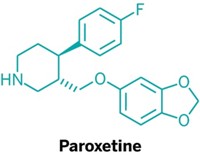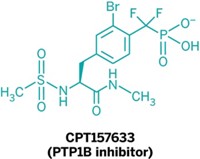Advertisement
Grab your lab coat. Let's get started
Welcome!
Welcome!
Create an account below to get 6 C&EN articles per month, receive newsletters and more - all free.
It seems this is your first time logging in online. Please enter the following information to continue.
As an ACS member you automatically get access to this site. All we need is few more details to create your reading experience.
Not you? Sign in with a different account.
Not you? Sign in with a different account.
ERROR 1
ERROR 1
ERROR 2
ERROR 2
ERROR 2
ERROR 2
ERROR 2
Password and Confirm password must match.
If you have an ACS member number, please enter it here so we can link this account to your membership. (optional)
ERROR 2
ACS values your privacy. By submitting your information, you are gaining access to C&EN and subscribing to our weekly newsletter. We use the information you provide to make your reading experience better, and we will never sell your data to third party members.
Biological Chemistry
Genetic Risk Factor Found For Migraines
Study results should add impetus to the development of treatments that inhibit glutamate signaling
by Sophie L. Rovner
September 13, 2010
| A version of this story appeared in
Volume 88, Issue 37
Although a number of treatments are available for migraines, not much is known about the root cause of these debilitating headaches, which are often accompanied by nausea, vomiting, and extreme sensitivity to light and sound. Researchers have now identified the first genetic risk factor for common types of migraines (Nat. Genet., DOI: 10.1038/ng.652). Aarno Palotie, chair of the International Headache Genetics Consortium at the Wellcome Trust Sanger Institute, in Cambridge, England, and colleagues are reporting a genomewide association study that shows people with a particular DNA variant between two genes on chromosome eight are more susceptible than the general populace to migraines. The researchers believe this region of DNA regulates adjacent genes involved in the control of glutamate, an excitatory neurotransmitter previously implicated in migraines. They think the mutation causes excess glutamate to accumulate at synapses. The findings should add impetus to the development of treatments that inhibit glutamate signaling—welcome news to the one in six women and one in 12 men who suffer from migraines.




Join the conversation
Contact the reporter
Submit a Letter to the Editor for publication
Engage with us on Twitter